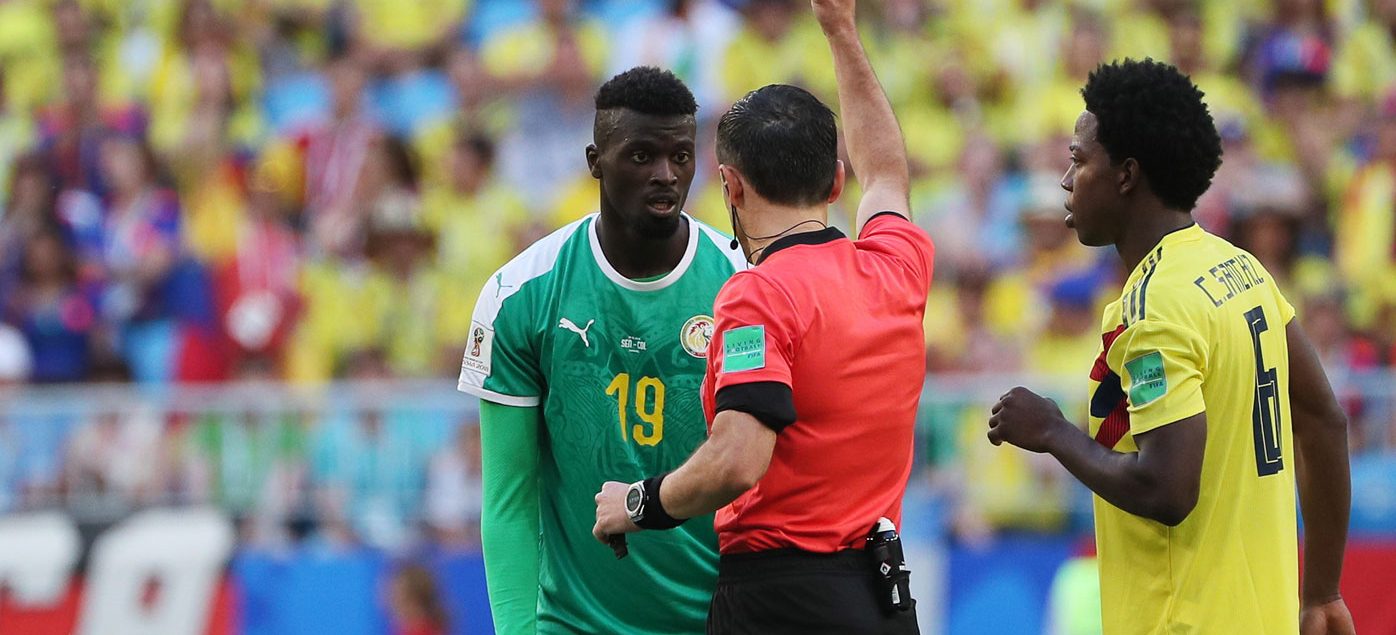Destroying a Dream through Fair Play Rules
The World Cup. Football’s greatest competition. 32 national teams coming together to compete for the sport’s biggest trophy every four years. A spectacle watched by billions of people around the world. A chance to drive one nation to sheer ecstasy. Why on Earth is this footballing extravaganza ruined by ludicrous rules and regulations?
For national teams, the World Cup is a moment of culmination. Four years are spent developing talent, honing the squad, and qualifying for the competition. For some giants, such as Germany, Spain, and Brazil, qualification is expected; for others, like Panama, Egypt, and Peru, qualification is a day of major celebration. Either way, the tournament is a time for hardcore fans and novices alike to tune in to some of the most entertaining football of the year. It is the competition where all the greats compete in different colors: Neymar faces off against Hazard; Messi against Mbappé; Ronaldo against Cavani. Players exhibit a fierce loyalty to their home countries, playing their hearts out, their intensity matched by the passion of their fans. Nevertheless, the cruelness of the World Cup’s rules are devastating to everyone involved.
The International Football Association Board (IFAB) serves “the world of football as the independent guardian of the Laws of the Game” [theifab.com]. For some reason, this independent committee saw it in football’s best interest to introduce a yellow card accumulation rule for tournaments. The rule states that any player who is cautioned twice – TWICE – before the end of the quarterfinals will be suspended for one match. For the World Cup, this means that any player who is booked two times in their first five matches will miss one game. The result of this outrageous rule is suspensions being handed out left and right.
In the Euros and Copa América Centenario, key players such as Arturo Vidal, Mats Hummels, and N’Golo Kanté were all suspended due to this rule. Not only does this rule cruelly punish players who may have been booked unfairly, but it also forces players to adjust their playing style in hopes of preventing another booking before the semifinals. Brazil could easily make a case that their World Cup hopes were dashed by the loss of Casemiro, who received two yellows in four games and missed out on a quarterfinal clash versus Belgium. Belgium, who are moving on, will be without Thomas Meunier, who picked up his second yellow against Brazil. Several other players faced potential suspensions after quarterfinal bookings, and their teams’ eliminations do not change the idiocy behind this rule.
Although the yellow card accumulation rule is the most consequential in the World Cup, another idiotic FIFA rule has come into play at Russia 2018. Called the fair play tiebreaker, it is the seventh of eight tiebreakers that FIFA has in place for deciding a tie on points. This controversial tiebreaker favors teams who collect the least amount of yellow and red cards. Beginning on a total of zero points, teams are deducted points through the following scenarios:
- one point for each yellow card
- four points for a straight red card
- three points for each second yellow that leads to a red card
- five points for a yellow card and a straight red card
After the three group stage games, FIFA sums up the points total, and the team with the fewest infractions wins the tiebreaker. It was this controversial rule that led to the elimination of Senegal, who tied with Japan but committed more fair play infractions. Although Senegal coach Aliou Cissé was respectful of the rule, he did admit that the team “would have liked to have been eliminated another way.” This cruel rule is no way to settle a tiebreaker, and is primarily influenced by the judgement decisions of the referees governing the group stage games.
These two unnecessary, consequential rules dampen the fervor surrounding Russia 2018. Imagine fighting your heart out for your nation, only to be eliminated by a “fair play” rule. As a player, having to worry about a second booking can completely hinder your effectiveness. IFAB’s rule punishes the players, the teams, the fans, and the sport as a whole by focusing heavily on the disciplinary side of the game. The World Cup happens every four years, and when it does, the footballing world wants to watch the best of the best – not some benchwarmer forced into the lineup because of an idiotic suspension rule. Although the committee’s intentions when implementing these rules may have been the diminishing of injuries, they have implemented a thoughtless policy, which has cost a few nations their World Cup dream, while also attracting criticism from fans and experts alike.
By: Brandon Duran
Photo: AAP
